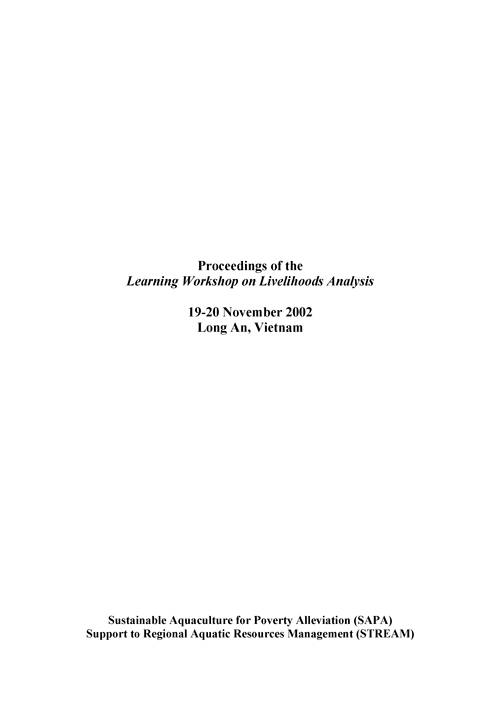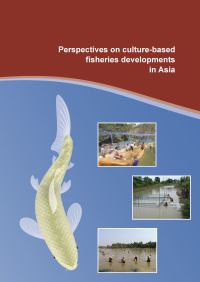Proceedings of the Learning Workshop on Livelihoods Analysis, 19-20 November 2002, Long An, Vietnam
30 January 2004 | 1016 Downloads | .pdf | 454.66 KB | Gender, Livelihoods, gender and social issues, Education and Training, Vietnam
This Learning Workshop on Livelihoods Analysis was held in Long An Province from 19-20 November 2002. It was part of an ongoing series of activities that will inform the implementation of the Ministry of Fisheries (MOFI) Strategy on Sustainable Aquaculture for Poverty Alleviation (SAPA) under the Vietnamese Government’s Hunger Eradication and Poverty Reduction (HEPR) Program.
The workshop program (Appendix 1) was jointly drafted by the SAPA Office and the STREAM Regional Office (RO). Barbara Fortunato, the VSO volunteer posted to SAPA-STREAM, took responsibility for organizing the workshop, with supervision from the STREAM RO. The recruitment in October of Nguyen Song Ha, STREAM Vietnam Communications Hub Manager, improved preparations within the Vietnamese national context.
Participants (Appendices 2 and 3) included representatives from LHA workshops held in 2001 and groups identified by partners of international organizations. Additional participants were referred to SAPA-STREAM by the participants themselves. In some cases, organizations that had heard about the workshop through partners asked to join in. This resulted in a mix of participants from commune to provincial level DARD, Women’s Union, People’s Committees, international organizations, university-based extension programs, and research institutions.
Following last year’s workshops, it had been suggested that the next workshop would be held in Long An Province. SAPA then asked the Long An team leader, Mr Tuong of the DARD, if they could co-sponsor the workshop in Tan An town. Permission to hold the workshop was later obtained from the Provincial People’s Committee.
Creative Commons Attribution.

